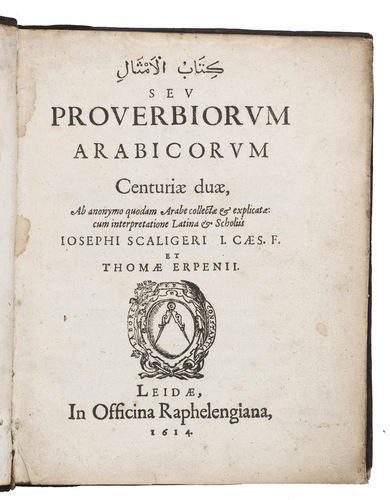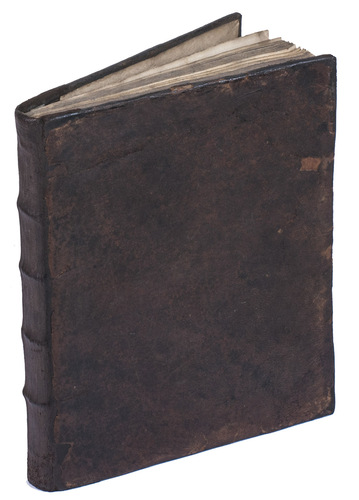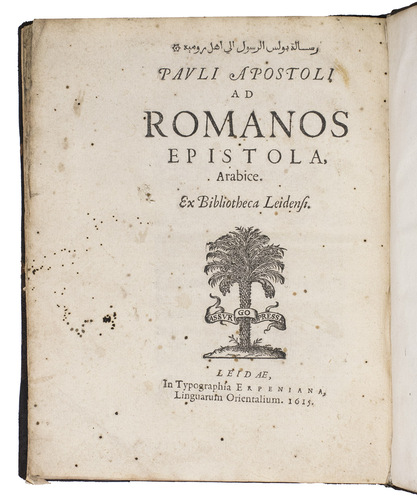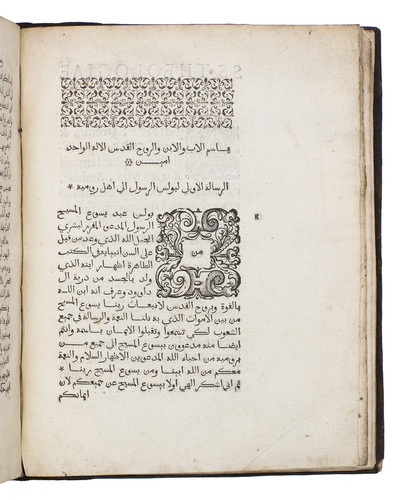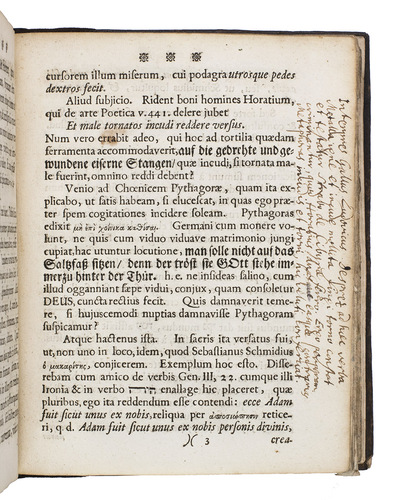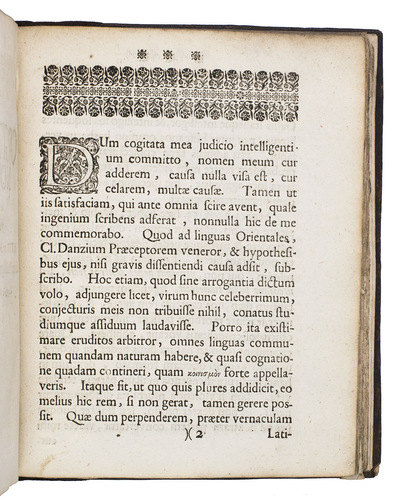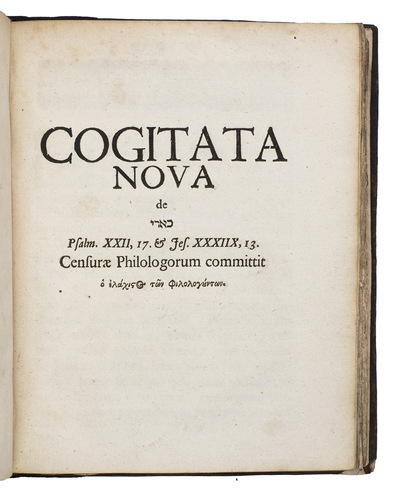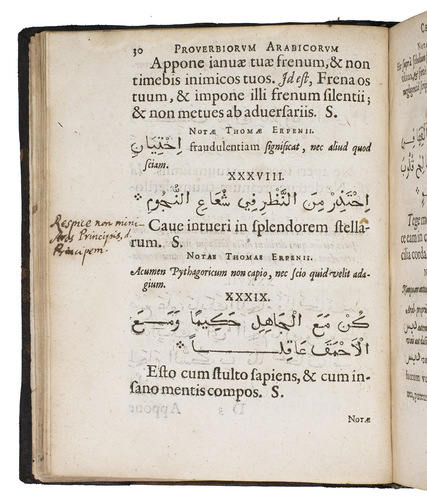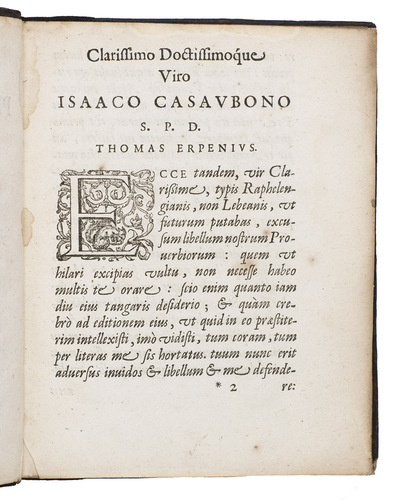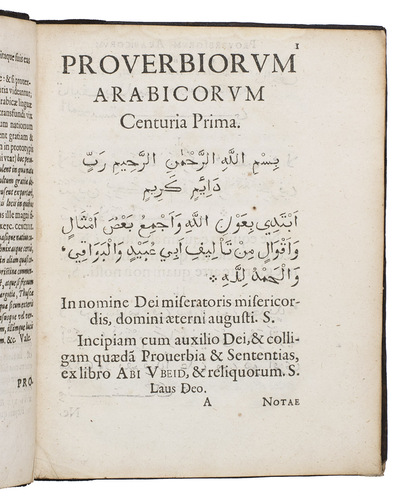SCALIGER, Joseph Justus and Thomas ERPENIUS.
[Kitab al-Amthal] seu proverbiorum Arabicorum centuriae duae.
Leiden, Frans van Ravelingen, 1614. 4to (16 × 20 cm). Ad 1 with a woodcut printers device on the title-page, woodcut initials and tailpieces. Ad 2 with a woodcut printers device on the title-page, woodcut tailpieces and woodcut ornamental frames around typographic Arabic initials. With:
(2) Cogitata nova de [kari] Psalm XXII, 17 & Jes. XXXIIX, 13 censurae philologorum committet ho elachistos ton philologounton.
[ca. 1615?].
(3) [BIBLE - NEW TESTAMENT - ARABIC]. ERPENIUS, Thomas (editor). [Risalat Bulus al-rasul ila ahl Rumija]. Pauli apostoli ad Romanos epistola, arabice.
Leiden, Typographia Erpeniana, 1615. Contemporary marbled calf. [8], 126, [2 blank]; [8]; [48] pp.
€ 18,000
First edition of this seminal work in the history of Arabic scholarship and printing: the first book on Arab proverbs, and the first critical edition ever of an Arabic text.
These 200 proverbs constitute a collection akin to a mirror for princes, dedicated to the education and refinement of a gentlemans personal and political life. The manuscript was obtained in Rome by the mathematician David de Fleurace, later the educator of Louis XIII, and given to Casaubon. J. J. Scaliger (1540-1609) had translated and explained the first 176 proverbs; after his death, the work was completed and prepared for publication by Thomas Erpenius (1584-1624), who had, just the year previous, become the first European to publish an Arabic grammar.
The editors cite as their source Abu Ubaid al-Qasim ibn Salam (ca. 770-838 CE), a prolific Muslim scholar educated in Basra and well-versed in Muslim law (fiqh), the hadith tradition, theology, and various scholarly pursuits. This is one of the last books to be printed with Raphelengius large Arabic types. Fück hails the publication as "a touchstone in the history of Arabic studies in the West: the first edition of an Arabic text according to the principles of philolological method" (p. 62).
Ad 2: Bound as the second of the three works in the binding is is a brief philological essay on two Biblical verses, with a few contemporary marginal annotations in ink.
Ad 3: Bound at the other end of the volume is the editio princeps of the "Epistle to the Romans" in Arabic, edited by Erpenius with a short preface to his students. "The last six leaves contains the Epistola ad Galatas in Arabic, not announced on the title-page or in the preface, and probably added as an afterthought. The text was printed from a manuscript in the Scaliger legacy" (Smitskamp 280).
Binding rebacked and slightly worn; internally very good, with only a few smudges. Remarkably well preserved. Ad 1: Fück 61f; Schnurrer 216; Smitskamp, PO 267; STCN 863134505 (9 copies); USTC 1006806, 1035092 (38 copies); WorldCat 153233819, 11673496 (13 copies); Ad 2: WorldCat 258423930 (1 copy); Ad 3: Schnurrer 325; Smitskamp, PO 280; STCN 132848082 (1 copy); WorldCat (30 copies).
Related Subjects:










